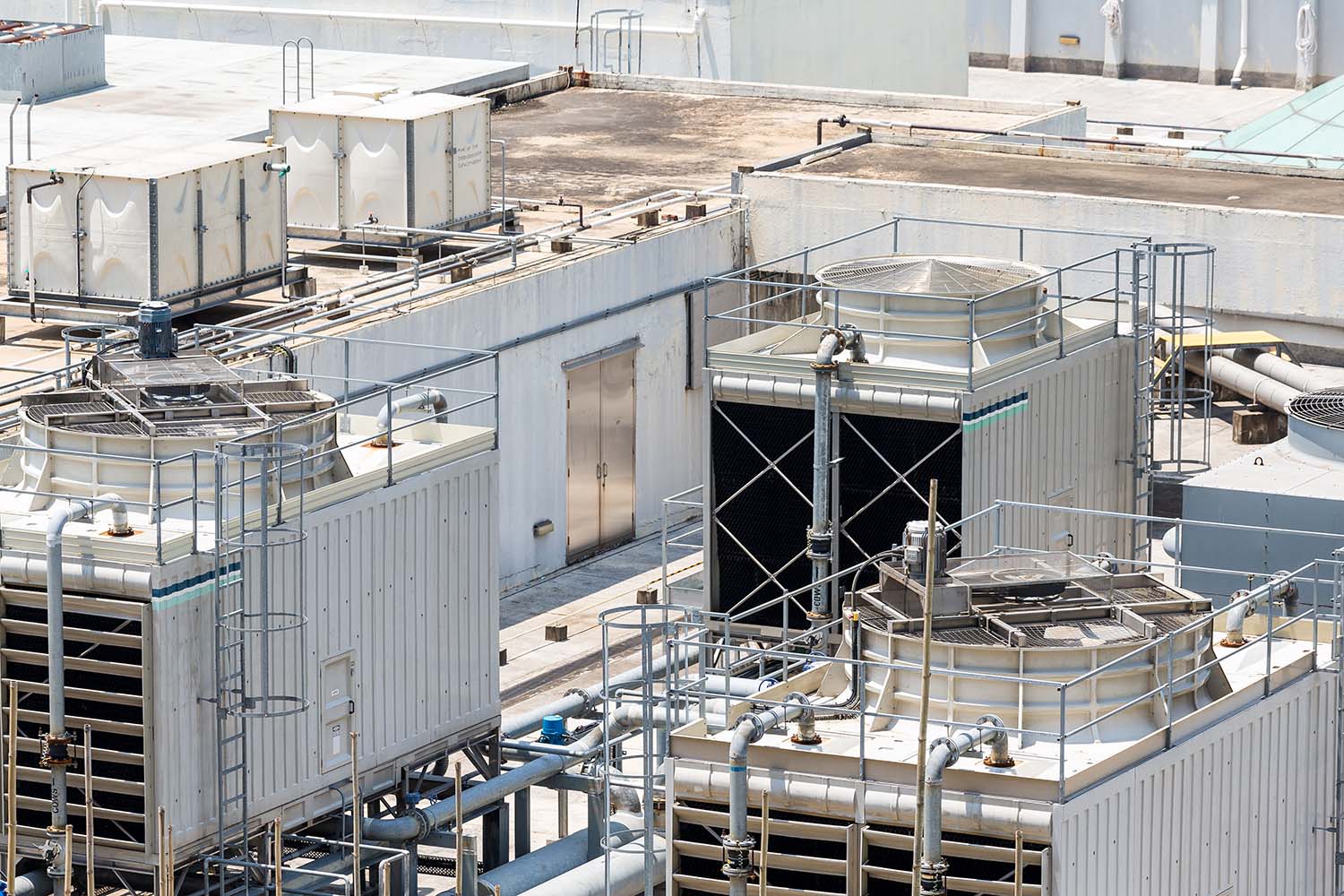Top Reasons to Conduct Regular Cooling Tower Inspections

Cooling towers are incredible additions to large HVAC systems. During operation, other HVAC components generate heat. High temperatures can lead to system failure, so counteracting that heat build-up is essential. Cooling towers work to keep HVAC systems at a safe and functioning temperature. As with any piece of equipment, cooling towers and their components often depreciate in quality or get damaged over time. Even minor issues within a tower cause both safety and efficiency concerns. While some of these issues are visible by operators during regular tower use, others require specific thorough inspections. Scheduling these inspections on a frequent, regular basis offers several advantages over simply waiting for issues to arise and needing addressing.
Proactively Identify Safety or Functionality Issues
Cooling towers are incredible pieces of equipment, but as is the case with all HVAC components – they also present safety issues if not correctly installed and maintained. Because tower components can deteriorate over time, scheduling regular inspections means likely finding safety or functionality issues before they cause major problems or damage.
Two of the most common cooling tower issues are corrosion and scaling. The first affects metal tower components and results from a chemical process when air meets sodium and other chemicals in the water. The reaction leads to metal breaking down. In its early stages, this may result in inefficienct and greater energy consumption. If left to worsen, however, it can easily result in extreme equipment damage and very costly repairs. Identifying signs of corrosion during a regular inspection means the option to take steps to repair or solve minor issues of corrosion and save on bigger repairs if left unnoticed.
Scaling refers to the build-up of minerals or chemicals – that were broken down during tower operation – on tower surfaces. Scaling brings the potential of damaging internal tower surfaces if not identified and rectified quickly. In lesser cases, it still reduces the tower’s efficiency, meaning higher costs of operating. Regular inspections are a great way to identify evidence of scaling prior to it becoming a major issue. Trained experts can identify the root causes of a scaling issue and recommend treatment plans that help ensure excess build-up during normal operations.
Maintain Compliance with Government Regulations
In addition to simply ensuring towers run safely and efficiently, regular inspections also help ensure they comply with various government regulations, including local, state, and federal. The majority of these government regulations and guidelines are established to help prevent the growth and spread of the legionella bacteria. Those who ingest the bacteria risk developing Legionnaires Disease, a very serious lung infection. According to the CDC, the disease has grown significantly in prevalence over the past couple of decades. In fact, the number of reported cases of the disease has increased nine times over since 2000.
In Florida, 10% of those contracting the disease from sources such as cooling towers end up dying from it or its complications. Because of the severity of the disease and its implications for sufferers, a lot of legislation has been enacted on all government levels to prevent more growth in numbers. The Florida government passed legislation in 2020 that requires tower owners to regularly inspect and clean the units regularly and to take samples to test for legionella bacteria. It also requires that any findings of the bacteria be reported to the health department, and in some cases – the general population.
Inspections and tests must be performed by trained experts, specifically those trained by the American Industrial Hygiene Association(AIHA) and the National Environmental Health Association (NEHA). This guarantees consistency in testing procedures as well as clear training on the mediation of any existence of the bacteria.
Like any other industry – regulations and guidelines tend to evolve as technology improves and best practices shift. Partnering with industry experts for your inspection needs means access to a comprehensive knowledge base that will continuously keep you and your towers in compliance with any and all regulations currently in place.
Inspections from Cooling Tower Experts
In addition to other cooling tower services, such as installation and training, Cooling Tower Experts also offers inspection services for units big or small. During these inspections, our team meticulously examines all tower components – including both internal and external areas. Doing so allows us to compile an extensive report with both written and photographic evidence to give you an accurate idea of your unit’s condition.
After inspection, we deliver our findings report with our recommendations for potential repairs or updates we feel would be beneficial to keep the unit running in top condition. We can even offer a cost analysis, with emphasis placed on those repairs that we feel need attention sooner rather than later. The best part? Most inspections can be performed at no charge to the customer.
To ensure your unit is performing efficiently and safely and remains in compliance with all applicable government regulations – we encourage you to invest in regular inspections. Partnering with Cooling Tower Experts for this means bringing in a team that is OSHA 10 certified. In addition to being OSHA certified, we also maintain membership with multiple safety regulatory agencies to ensure we can accurately advise on safety compliance across all industries and verticals.
Our team’s years of training and industry experience mean they have a clear understanding of workplace safety and how to maintain a safe work environment when operating a tower. If you’d like to partner with us for your next inspection, we’d be glad to help. Contact us to schedule your next cooling tower inspection today!